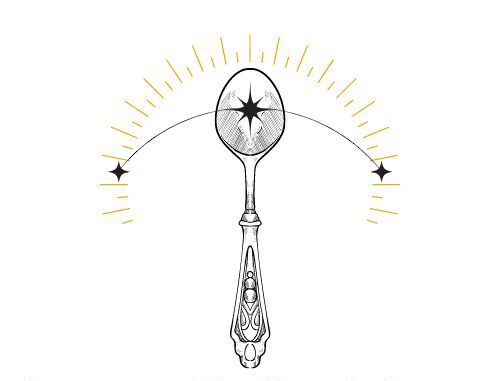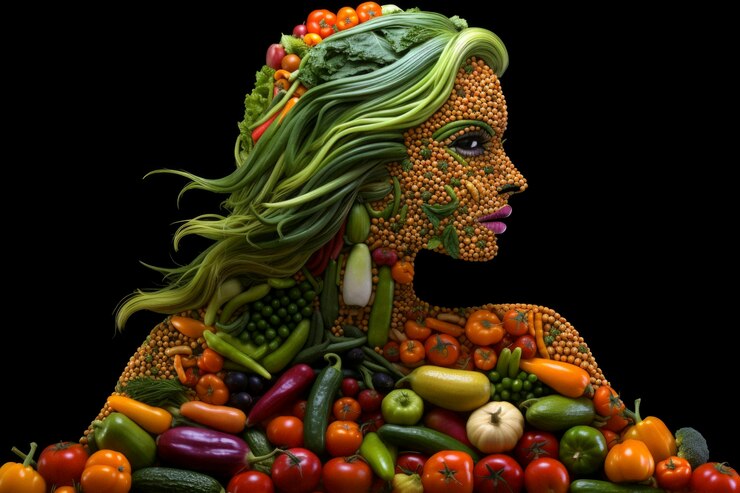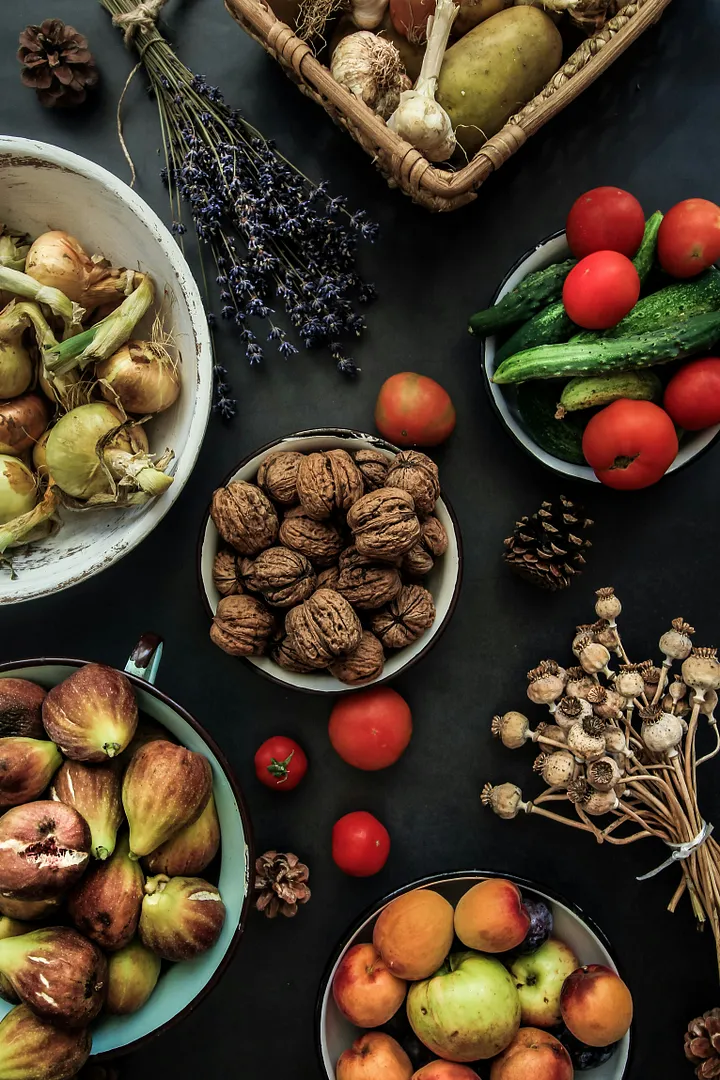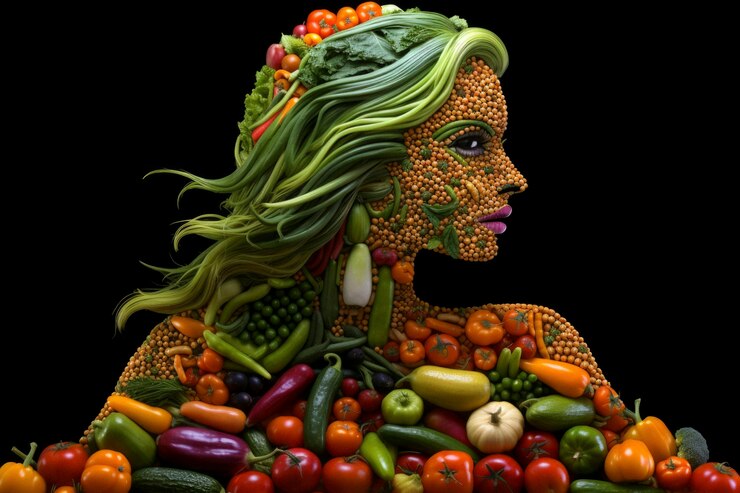
Well, guess what… It just so happens that we are what we eat. So, let’s delve into the question, “What’s on your plate, and is it affecting how you feel?”
In chasing wellness, a healthy diet and good mental health are our body’s Batman and Robin. Our brains depend on a well-rounded diet for tip-top performance, much like the dynamic duo needs the Batmobile to save the day. Important nutrients for emotional and brain health include B vitamins, antioxidants, magnesium, omega-3 fatty acids, and hydration.
When talking about nutrition, we can’t leave out the importance of the gut. The gut plays the role of our backstage roadie, influencing our state of mind through the gut-brain axis. When we nourish our bodies with wholesome, nutrient-rich foods, we can harness the untapped potential of healthy eating to boost mental wellness.
Every day, we unravel new information about the intricate link between digestion and emotions along the gut-brain axis. Happier times and stronger minds are within our reach as we unravel new information in the mystery of the relationship between nutrition and mental health.
Proper nutrition is the base that supports the building on top of it. But we can’t just think about that, we also need to consider other important factors like exercise, sleep, and stress management. Then we can better understand our overall well-being.
Making informed choices helps us to improve our physical, mental, and emotional health, which gives us the tools to do just that. We set the stage for a rich, full life when nutrition is a top priority since it is the foundation of our entire world.
Beyond Diet: What Else is There to Think About?
Why is keeping up with hydration so important? Staying hydrated is essential for preserving mental well-being. Drinking enough water is crucial for brain health since even a small amount of dehydration can affect concentration, lower brain function, and make tasks seem harder.
Sufficient hydration promotes neuron function and neurotransmitter creation, both are essential for mood control and brain functions. Water also helps remove chemicals linked to inflammation and pollutants that may harm mental health.
Staying hydrated is essential for mental wellness because it enhances mental clarity, stability, and overall brain function.
Balancing Blood Sugar. Why Is It Important?
Because blood sugar changes majorly impact our mood, focus, and brain function. Controlling blood sugar levels is essential for maintaining good mental health.
Stable blood sugar lowers the risk of anxiety and depression and helps avoid mood swings and irritation.
Consistent levels assist the brain’s ongoing energy supply, avoiding tiredness and improving mental processes like memory and judgment.
Maintaining a healthy blood sugar level through food requires a diet low in refined carbohydrates and sugars and high in fiber-rich veggies, whole grains, lean meats, and healthy fats.
Can You Exercise Your Way to Happy?

It is well-known that maintaining a regular exercise routine significantly improves mental wellness. Managing weight and building muscle aren’t the only benefits of exercise. It also helps ease mental health issues like sadness, anxiety, and stress.
Feeling good and happier is a natural consequence of the endorphins and serotonin that our bodies produce when we work out and eat right.
Physical activity has many other benefits, including raising self-esteem, improving sleep quality, and providing a welcome diversion from stressful thoughts and feelings.

From Rest to Best: Sleep Well and Stress Less Equals Better Mental Health
Along with good nutrition, another essential part of the puzzle of good mental health is sleeping well and lowering stress. It helps to maintain the chemicals in our brain that carry information that regulates our moods and emotions.
Our emotional stability and cognitive abilities may suffer when we don’t get enough sleep, which increases stress. Having a positive sleep cycle is important in the quest for happiness.
Practices like mindfulness and regular exercise can significantly reduce stress and lead to a regular sleep routine.
Foods to Nourish Your Brain: Choices for Better Mental Health
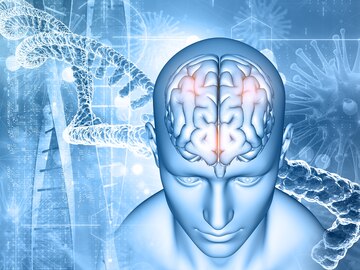
Gut Health: The gut microbiome influences the production and regulation of key neurotransmitters and inflammatory molecules that affect brain function and mood. Foods that will keep your gut bacteria singing are:
- Yogurt (with live cultures)
- Kefir
- Sauerkraut
- Kimchi
- Miso
- Tempeh
- Pickles (fermented, not vinegar-based)
- Whole Grains (like oats and barley)
- Bananas
- Garlic
Omega-3s: These foods are excellent choices to increase your intake of omega-3s.
- Flaxseeds
- Chia Seeds
- Walnuts
- Salmon
- Sardines
- Mackerel
- Herring
- Algal Oil (a vegetarian source from algae)
- Hemp Seeds
- Canola Oil
Antioxidants: If you want to increase your antioxidant consumption, these foods are great options, which can help protect your cells from damage.
- Blueberries
- Dark Chocolate
- Pecans
- Strawberries
- Artichokes
- Goji Berries
- Raspberries
- Kale
- Red Cabbage
- Beans
B Vitamins: Foods rich in B vitamins are crucial in helping to produce neurotransmitters, support energy production, and maintain healthy nerve cells.
- Salmon (B12, niacin, B6)
- Leafy Greens (folate)
- Eggs (B12, B2, B5)
- Milk (B2, B12)
- Beef (B12, B3, B6)
- Chicken Breast (B3, B6, B12)
- Oats (B1, B5)
- Bananas (B6)
- Legumes (B1, B9)
- Nuts and Seeds (B1, B2, B6)
Vitamin D: Helps regulate mood, ward off depression, and support overall brain function.
- Salmon
- Mackerel
- Sardines
- Cod Liver Oil
- Canned Tuna
- Egg Yolks
- Mushrooms (especially those exposed to sunlight) · Fortified Milk
Magnesium: This helps regulate neurotransmitters and stress responses, which reduces anxiety and enhances mood.
- Pumpkin Seeds
- Almonds
- Spinach
- Cashews
- Peanuts
- Soymilk
- Black Beans
- Edamame
- Dark Chocolate
- Whole Wheat
Let’s Look at the Evidence: The Link Between Good Nutrition and Great Mental Health
1. The SMILES Trial (2017): This pivotal study found that participants who followed a Mediterranean-style diet rich in fruits, vegetables, whole grains, and lean proteins for 12 weeks showed fewer symptoms of depression compared to those who received social support only.
2. The SUN Project (2018) demonstrated in a study from the “Seguimiento Universidad de Navarra” (SUN) Project that using the Mediterranean diet reduced the risk of developing depression. They had more than 15,000 participants over 10 years, which showed that diet quality significantly affects mental health.
3. Avon Longitudinal Study of Parents and Children (ALSPAC) (2019): This study showed that children and adolescents who eat a diet high in fruits, vegetables, fish, and whole grains have better mental health in adolescence. The study showed that good nutrition early in life is critical in developing good mental well-being.
These studies illustrate the relationship between mental health and quality of diet, showing that a healthy diet can both reduce the onset of mental health issues and improve psychological well-being.
Finding Your Fit: What’s The Best Diet for You?
Several diets that emphasize balanced nutrition and overall wellness have been linked to improvements in mental health. Here are three diets considered effective in supporting good mental health:
Mediterranean Diet:

· Key Features: High in vegetables, fruits, whole grains, olive oil, fish, and moderate in dairy and wine.
Mental Health Benefits: This diet is rich in omega-3 fatty acids, antioxidants, and monounsaturated fats, which are important for brain health and reducing inflammation.
The Mediterranean Dish Is a website filled with great recipes.
Nordic Diet:
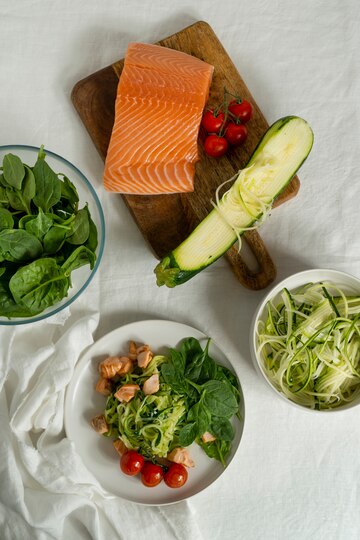
· Key Features: Similar to the Mediterranean diet but tailored to the foods commonly available in Nordic countries. It emphasizes whole grains (such as barley, rye, and oats), berries, vegetables, fatty fish, and legumes, with a minimal intake of processed foods.
Mental Health Benefits: The Nordic diet is high in fiber, lean protein, and omega-3 fatty acids, important for brain function and mood regulation. The antioxidants found in berries and other plant-based foods in this diet help combat oxidative stress, linked to mood disorders.
Nordic Food and Living Is a great website for recipes.
Whole Foods Plant-Based Diet:

· Key Features: Focuses on foods primarily in their natural form and excludes or minimizes meat and dairy products. It includes a lot of vegetables, fruits, beans, legumes, whole grains, nuts, and seeds.
Mental Health Benefits: This diet is rich in nutrients essential for neurotransmitter function and overall brain health.
Researchers have linked a high intake of fruits and vegetables with lower levels of depression and anxiety. The diet also supports good gut health, maintaining mental health because of the gut-brain connection.
The Simple Veganista Has great vegan-based recipes.
Each of these diets promotes the consumption of natural, nutrient-dense foods and limits processed foods, sugars, and unhealthy fats.
5 Solutions to Overcoming Barriers in Following a New Diet
Changing your diet can be difficult at first, but you can get around obstacles if you know what to do.
These five ideas can help you maintain your new eating habits and make the shift easier.
1. Educate Yourself: Familiarize yourself with the diet and the principles before starting. Knowing the “why” behind the things you should and shouldn’t eat will help you stay motivated and get past tough decisions.
2. Plan Your Meals: Planning your meals will help you avoid harmful impulse snacks and purchases, keep all the materials you need on hand, and gradually add diversity to your diet to keep it interesting. This will help you stay on a new diet.
3. Start Gradually: Make gradual, doable changes at first rather than completely altering your diet all at once. For instance, start with one new plant-based meal each week and gradually increase the amount. Or slowly add more fish and vegetables to your meals as you move toward a Mediterranean or Nordic diet.
4. Seek Social Support: Get motivation and support by sharing your dietary goals with friends or family. Joining local or online communities with people who have similar needs can provide support, guidance, and hopefully some yummy recipes.
5. Prepare Before Eating Out: When starting a new diet, it’s difficult to eat out. Find restaurants that have selections that fit your diet by doing some advanced research on them. Never be afraid to request food adjustments to meet your diet requirements. If you can, browse internet menus before your visit to help you decide what to purchase.
By using these strategies, you can address the typical challenges of beginning a new diet making it simpler for you to stick to and enjoy its health benefits.
The Unhappy Plate: What You Need to Know About Foods Bad for Mental Health
To promote good brain health, it’s suggested to limit or avoid certain foods that can negatively affect your mood and brain function.
Highly processed foods, such as chips, candy, and fast food, often contain high levels of refined sugars and unhealthy fats which can trigger inflammation which is a known factor in depression and anxiety.
Too much caffeine and alcohol can disrupt sleep patterns and lead to mood swings.
Refined carbohydrates, like those found in white bread and pastries, cause rapid spikes in blood sugar, which can lead to feeling irritable and fatigued once blood sugar levels drop.
Avoiding these foods and opting for whole, nutrient-dense alternatives, can encourage more consistent mood control and mental health.
In a Nutshell: The Quick and Concise Breakdown
Having a great diet is like treating your brain to a 5-star spa experience every day. Picture your brain getting a renewing omega-3 oil massage, while relaxing with a calming antioxidant-rich berry face mask on.
A diet full of nutritious foods ensures that your brain cells aren’t just surviving on caffeine and cortisol but thriving on all the good stuff.
So, make the food on your plate all the colors of the rainbow, your water bottle full, and choose wise snack decisions. Let’s aim for a fulfilling life where your thoughts are as clear as a vibrant fruit salad and Zen as camomile tea.

